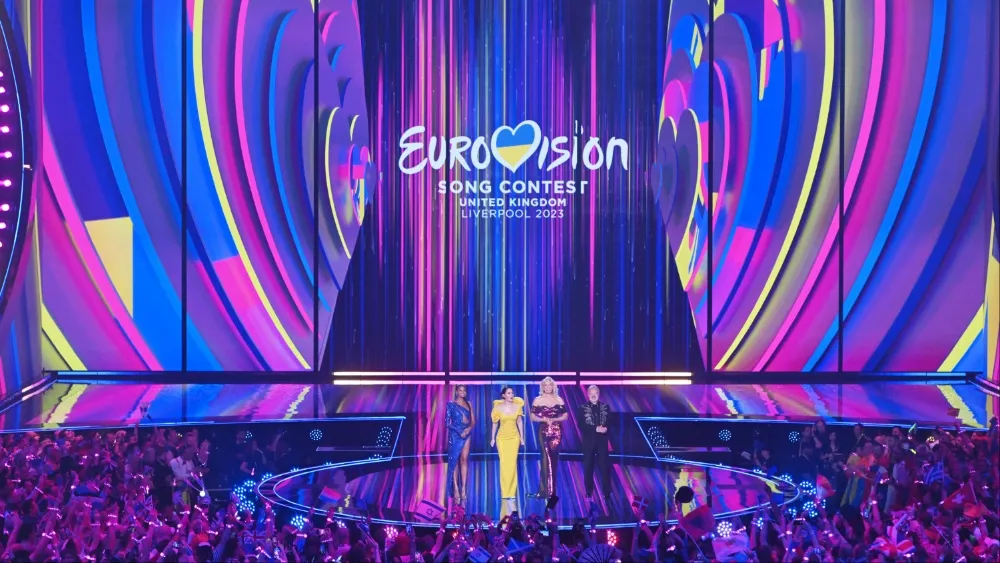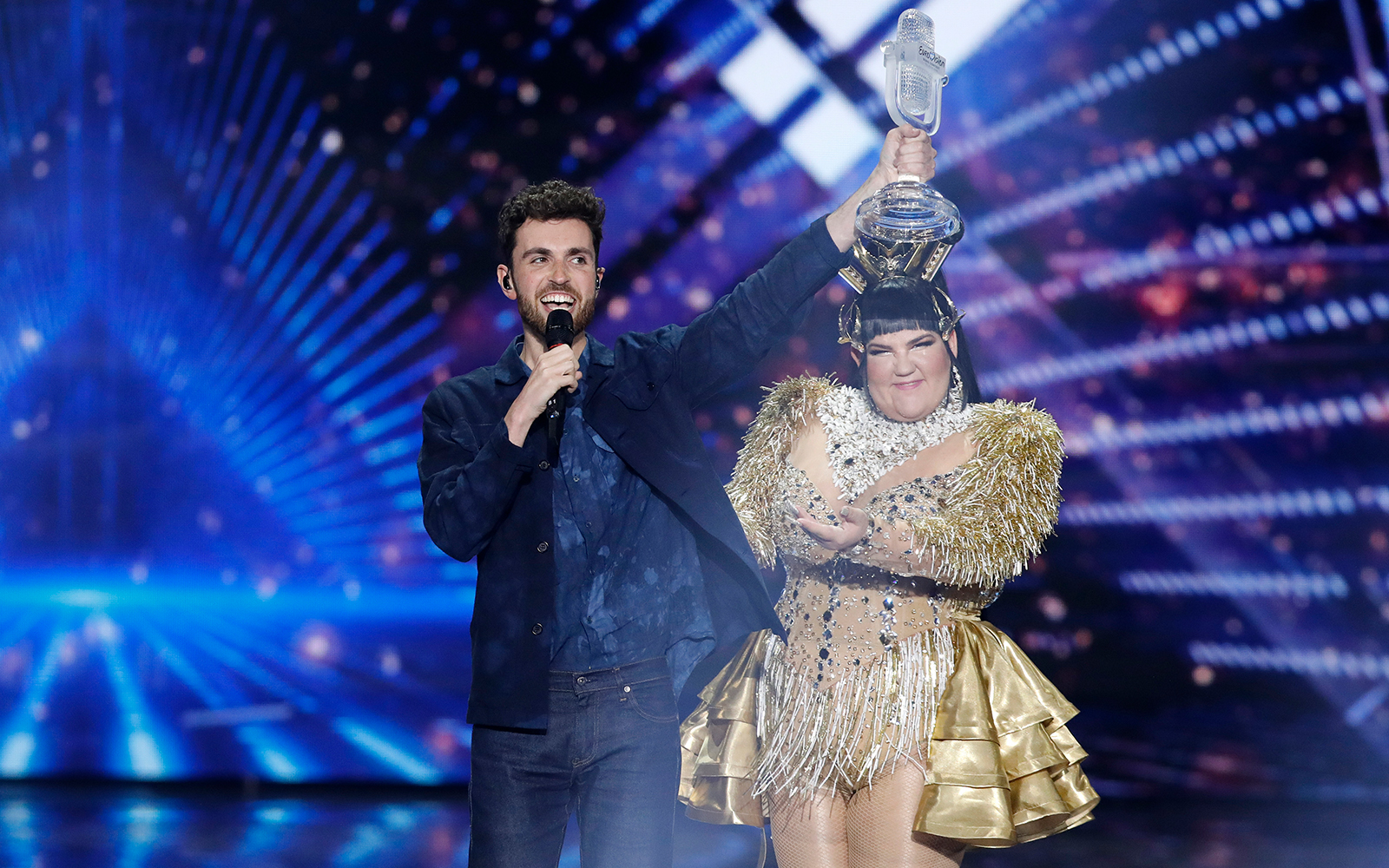Eurovision Song Contest
The Eurovision Song Contest stands as a cultural phenomenon that has been captivating audiences across Europe and beyond for decades. Born out of a desire for unity and connection, this annual musical extravaganza has become a celebration of diversity, creativity, and shared artistic expression.
Feb 02, 20241 Shares54 Views

The EurovisionSong Contest stands as a cultural phenomenon that has been captivating audiences across Europe and beyond for decades. Born out of a desire for unity and connection, this annual musical extravaganza has become a celebration of diversity, creativity, and shared artistic expression.
Early Beginnings - A Musical Vision For Unity
The inception of the Eurovision Song Contest in 1956 was a response to the need for cultural collaboration in a continent scarred by the ravages of World War II. With only seven participating countries - Belgium, France, Germany, Italy, Luxembourg, Netherlands, and Switzerland - Eurovision emerged as a pioneering effort to foster harmony through the unifying language of music.
A Post-War Vision
In the aftermath of a devastating conflict, the founders envisioned a competition that transcended borders, emphasizing the common ground shared through melodies and lyrics. The Eurovision stage became a canvas for rebuilding connections, fostering a sense of unity among nations with diverse histories and languages.
The Debut Show
On May 24, 1956, the inaugural EurovisionSong Contest took place in Lugano, Switzerland. Each participating country presented two songs, performed live with an orchestra. The event marked the beginning of an annual tradition that would go on to captivate audiences for decades.
Growing Pains - Navigating Controversies And Transformations
Political Controversies
As Eurovision expanded, it encountered its fair share of political controversies. The voting process, initially designed to be impartial, occasionally became entangled in geopolitical tensions. Some accused participating nations of favoring neighbors or political allies, leading to heated debates about the fairness of the competition.
Accusations Of Bloc Voting
One recurring challenge involved accusations of bloc voting, where groups of countries allegedly coordinated their votes to support each other consistently. This phenomenon raised questions about the integrity of the contest, prompting organizers to explore ways to ensure a more transparent and equitable voting system.
Evolution And Adaptation
Despite these challenges, Eurovision evolved dynamically to reflect the changing landscape of Europe. The contest gradually expanded its participant list, welcoming new nations into the fold. This inclusivity not only broadened the diversity of musical styles but also created a more representative platform for the multitude of voices across the continent.
Embracing Innovation
In the face of criticism, Eurovision embraced innovation. The introduction of televoting in the late 1990s allowed audiences to have a direct impact on the results, democratizing the voting process. This shift marked a pivotal moment in Eurovision's history, making it more accessible and engaging for viewers around the world.
A Melting Pot Of Musical Styles - Harmonizing Diversity On The Eurovision Stage
Genre Diversity - A Sonic Tapestry Of Europe
Eurovision stands as a vibrant showcase of musical diversity, bringing together an eclectic mix of genres that span the entire spectrum of sonic expression. The contest, far from being confined to a single genre, welcomes and celebrates the various musical styles that define the rich cultural mosaic of Europe.
Pop Anthems To Rock Ballads
Pop music, with its infectious hooks and catchy melodies, has been a perennial favorite on the Eurovision stage. From upbeat anthems to soul-stirring ballads, the pop genre has proven to be a versatile canvas for artists to convey their messages of love, joy, and resilience.
Folk Traditions And Ethnic Sounds
Eurovision doesn't shy away from embracing the roots of its diverse participants. Folk traditions and ethnic sounds permeate the stage, with artists incorporating traditional instruments and melodies into their performances. This infusion of cultural authenticity adds depth and authenticity to the musical tapestry.
Electronic Beats And Modern Rhythms
As the music landscape evolves, Eurovision keeps pace by incorporating electronic beats and modern rhythms. The contest serves as a platform for artists pushing the boundaries of sound, experimenting with electronic elements and contemporary production techniques.
Noteworthy Performances - Capturing Moments In Eurovision History
ABBA's Triumph (1974)
No exploration of Eurovision's musical legacy is complete without mentioning ABBA's watershed moment in 1974. The Swedish quartet's performance of "Waterloo" not only secured their victory but also catapulted them to international stardom. This iconic win set the stage for future acts to aspire to global success through Eurovision.
Conchita Wurst's Empowering Victory (2014)
In 2014, Conchita Wurst, representing Austria, delivered a performance that transcended musical boundaries. With the empowering ballad "Rise Like a Phoenix," Conchita not only won the contest but also became a symbol of diversity and acceptance. This victory marked a historic moment, challenging preconceived notions and inspiring a new era of inclusivity in Eurovision.
Lordi's Rock Spectacle (2006)
Breaking away from traditional norms, the Finnish hard rock band Lordi stormed the Eurovision stage in 2006 with their theatrical performance of "Hard Rock Hallelujah." Their victory not only showcased the diversity of the contest but also proved that Eurovision could be a platform for unconventional and edgy performances.
Cultural Showcasing And Representation - Unveiling Europe's Rich Tapestry
National Identity On Stage - A Visual Symphony Of Diversity
Eurovision transcends the realm of a mere music competition; it serves as a canvas for nations to vividly display their unique cultural identities. On the Eurovision stage, countries go beyond melodies and lyrics, incorporating elements that showcase their distinctive heritage.
National Costumes And Attire
One striking aspect of Eurovision is the inclusion of national costumes, attire that reflects the historical and cultural essence of each participating country. These outfits not only add a visual spectacle to the performances but also serve as a proud statement of national identity.
Traditional Instruments And Sounds
Eurovision performances often feature traditional instruments, providing a harmonious blend of modernity and cultural richness. From the haunting notes of bagpipes to the rhythmic beats of folk drums, these instruments create a melodic tapestry that resonates with the diverse musical traditions of Europe.
Regional Languages And Dialects
The multilingual nature of Eurovision further emphasizes the rich linguistic diversity across the continent. Participants proudly sing in their native languages, celebrating the linguistic tapestry that defines Europe. This linguistic inclusion adds an additional layer of authenticity to the performances, fostering a deeper connection with the audience.
Breaking Stereotypes - Eurovision As A Catalyst For Change
Challenging Conventions
Eurovision has proven to be a catalyst for challenging stereotypes, breaking away from conventional norms in the music industry. The contest encourages artists to showcase their individuality, fostering an environment where creativity knows no bounds.
LGBTQ+ Representation
One of Eurovision's most impactful contributions to inclusivity has been its role in providing a platform for LGBTQ+ representation. The 2014 victory of Conchita Wurst, a drag queen from Austria, exemplifies this commitment to diversity. Through Conchita's emotional rendition of "Rise Like a Phoenix," Eurovision sent a resounding message of acceptance and celebration of different identities.
Promoting Tolerance And Unity
Eurovision, by embracing diverse expressions of identity, has become a symbol of tolerance and unity. The inclusion of LGBTQ+ themes in performances not only challenges societal norms but also fosters an environment where differences are celebrated, contributing to a more inclusive and accepting global community.
Eurovision In The Digital Age - A Global Phenomenon
Global Viewership - From Europe To The World
The digital age has transformed Eurovision from a regional spectacle to a global phenomenon. With the rise of online streaming platforms and social media, the contest has broken geographical boundaries, captivating millions of viewers worldwide. Eurovision has evolved into a shared experience that transcends cultural divides, bringing people together in celebration of music and diversity.
Online Streaming Platforms
The accessibility offered by online streaming platforms has played a pivotal role in Eurovision's global reach. Fans from across the continents can now tune in live, fostering a sense of global camaraderie as they witness the dazzling performances unfold in real-time.
Social Media Engagement
Social media has become an integral part of the Eurovision experience. Viewers actively engage in real-time discussions, share their favorite moments, and connect with others who share their passion for the contest. Hashtags related to Eurovision often trend globally, amplifying the sense of community among fans.
Memes And Trends - Shaping Internet Culture
Eurovision's impact extends beyond the stage, permeating internet culture with memorable moments that become viral sensations. Quirky performances, unexpected incidents, and catchy tunes give rise to a plethora of memes and trends that circulate widely online, contributing to the enduring popularity of the contest.
Memorable Performances
Explore how performances that capture the zeitgeist of the moment become internet phenomena. From dance routines to unexpected stage antics, Eurovision has become a fertile ground for creating shareable content that resonates across digital platforms.
Cultural References
Eurovision-inspired content often finds its way into various forms of digital media, from memes and GIFs to references in online discussions and forums. This digital footprint further solidifies Eurovision's status as a cultural touchstone in the digital age.
Challenges And Controversies - Navigating The Global Stage
Political Tensions
Despite its mission to promote unity through music, Eurovision has encountered instances where political tensions spilled onto the stage. Investigate how geopolitical conflicts have influenced voting dynamics and sparked controversies, highlighting the complexities of maintaining a politically neutral platform.
Addressing Criticisms
Critics argue that Eurovision can perpetuate certain stereotypes and may not fully represent the diversity of European music. Examine ongoing efforts by organizers to address these concerns and make the contest more inclusive. Explore initiatives aimed at reflecting contemporary musical trends and fostering a broader representation of artistic expression. You can learn more about Europewith EHIC.
Eurovision - FAQs
Who Is The Biggest Winner Eurovision?
The record for the most Eurovision Song Contest wins is held by Ireland's Johnny Logan. He won the competition twice as a performer, first in 1980 with "What's Another Year" and then in 1987 with "Hold Me Now." Additionally, he wrote the winning song "Why Me?" for Ireland in 1992, making him the only artist to have three victories in Eurovision.
What Is The Meaning Of Eurovision?
Eurovision, short for the Eurovision Song Contest, is an annual international song competition held among the member countries of the European Broadcasting Union (EBU). The primary objective is to foster cultural exchange and friendly competition through music. Participating countries submit original songs, and after a series of semi-finals and a grand final, one song and performer are crowned the winner. Eurovision serves as a platform for artists to showcase their musical talents, and it has become a celebration of diversity, creativity, and shared cultural heritage.
Why Was Eurovision Created?
The Eurovision Song Contest was created with the aim of promoting unity and cultural interaction among European countries in the aftermath of World War II. The inaugural contest took place in 1956, and its founders envisioned a competition that would transcend political and national boundaries, bringing nations together through the universal language of music. Eurovision provided an opportunity for countries to share their musical traditions, showcase their unique cultures, and build bridges of understanding in a post-war Europe. Over the years, it has grown into one of the most-watched non-sporting events globally, fostering a sense of community and celebration among people from different corners of the world.
Conclusion
As the Eurovision Song Contest continues to evolve, it remains a testament to the power of music in fostering connections across borders. From its humble beginnings to its status as a global cultural phenomenon, Eurovision stands as a glittering celebration of diversity, creativity, and the universal language of music.
Latest Articles
Popular Articles



